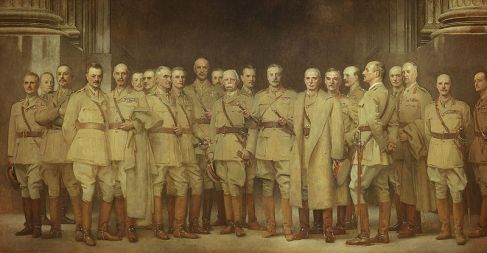The present succession and set up in Team England was always planned. Boof’s Australians merely brought forward the date of implementation.
Outsiders and disrupters should not underestimate the advantages held by an Establishment. Within any Establishment there are resources of talent, connections, favours to be called in, cash, time and the pervasive imperative of continuance, all of which can in the hurly-burly seem opaque to onlookers.
The Moores/Flower relationship is deep. It is built on affinity, especially of approach and thinking. Geography also helps. Moores lives close to the National Performance Centre at Loughborough University. His son plays for a nearby club. Flower still treads his well worn path between the nutritional dining centre in the EH Building and the drab Sixties block overlooking the Haslegrave pitch in which the computerised analysis goes on … day and night. It’s the Bunker.
Theirs is so firm a friendship, their thinking so close, their planning so meticulous that they are in theory and practice interchangeable, as they were and are once again. Of course, when combined as they were briefly and are now once again, they are a mighty outfit.
The Lancashire squad were never in any doubt through February, March and April, that Moores had ‘gone back to the England job’. Bets were made and won at eye-watering odds. It was extraordinary that professional reporting failed to see through the ‘noise’.
Giles Clarke had needed little persuasion to see the value of Flower released from the day to day grind of travel and actual play to spend more time designing the ‘future’ and preparing the next generations of players. For one thing it helped retain Flower who is seen as a precious resource to be carefully husbanded. His retention was a prime driver throughout the last few years and remains so.
Ashley Giles was never a serious contender. He was always there to facilitate Flower’s requirements as the Director’s inclination and ambitions took him deeper into strategic and forward planning.
For Flower, it became more and more about the power of ‘leadership’ (in management speak) to maximize the exploitation of talent – both the talent of others and ones own talent; leadership as self-actualization.
Had Pietersen fallen under a bus last summer the return of Moores would quickly have followed. The Pietersen Problem was merely a delaying factor for The Plan. But success from wherever, even from Pietersen, underpins an Establishment and time is always on its side. While Pietersen’s position was strong, The Full Plan would remain on hold.
Cook could see that Pietersen was by now a short term time limited resource and, as a young capatain, he placed greater importance on the medium to long term. If Cook ever had doubts, they did not last the winter.
More Leicestershire influence arrived in the shape of James Whitaker, born in Skipton in 1962, but educated at Uppingham, from where he joined Leicestershire CCC. For generations Uppingham has produced the colonial officers who kept the Empire going. Pleasant, intelligent, likeable and importantly ‘onside’.
Whitaker is also the perfect partner for the new Managing Director, Paul Downton, five years older than Whitaker, but produced from a similar mould. Educated at Sevenoaks Prep School, Sevenoaks School and then on to the University of Exeter. A former employee of Cazenove & Co.
Plum Warner and Lord Hawke would have thoroughly approved of these two. But, beside the charm, they have their own view of where England cricket should go. They look a good foil with their cavalier backgrounds between the young Millennial ‘blades’ and the puritan fathers, Flower and Moores.
Whitaker and Downton’s admiration for Flower and Moores might be similar to May and Dexter’s respect for, say, Close and Illingworth. They do their job very, very well. They keep the Establishment’s share price buoyant. And as long as they do that, they’ll keep their jobs. It is the old relationship between the son’s of the Founder and the professional managers on the board of Lord and Sons Ltd.
Downton may have weathered a sticky ‘AGM’ with small shareholders questioning the KP decision, but they are marching on … all of them, for the time being in harmonious lock-step. They believe the Firm has in the Flower/Moores/Farbrace line-up world beaters.
It is therefore an error to see the last six months as a series of contingencies brought about by Johnston’s form, Swann’s shoulder, Pietersen’s lack of personal skills, or Jonathan Trott’s sad difficulties . These are but ripples on an incoming tide.
Time will tell whether the Firm will regain their short era of market domination. But the strategy is irreversible. Interestingly, it heralds an era of cricketing management closer to that of 1932, than of 2002. Of course if the business as structured fails, it will be wide open to a take-over, perhaps by those upstarts who made their money from the East India Joint Stock Company.


















